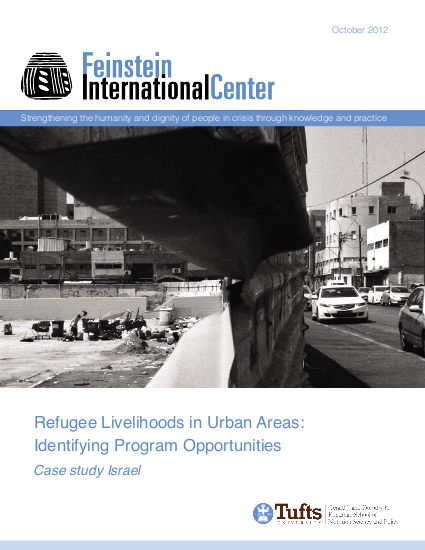
Refugees in urban areas face a specific set of livelihoods problems, and in recent years many aid agencies have begun to try to address these problems by supporting refugees through vocational training, microcredit and other services. So far, however, there has been little evidence about which humanitarian programs work, and where opportunities for programming interventions lie. This study, funded by the US State Department’s Bureau of Population, Refugees and Migration, addresses this knowledge gap. Through case studies in Cairo, Tel Aviv and Quito, we analyzed the urban livelihoods context for refugees and identified programming opportunities and promising program initiatives. In each city, we sought to generate new ideas from related fields of inquiry, such as low-income urban development and youth employment,that could be adapted for refugees in countries of first asylum.
Links
Resource collections
- UN Habitat - Urban Response Collection
- Urban Response - Urban Crisis Preparedness and Risk Reduction
- Urban Response Collection - Community Engagement and Social Cohesion
- Urban Response Collection - Economic Recovery
- Urban Response Collection - Environment and Climate Change
- Urban Response Collection - Housing, Land and Property
- Urban Response Collection - Urban Crisis Response, Recovery and Reconstruction
- Urban Response Collection - Urban Resilience